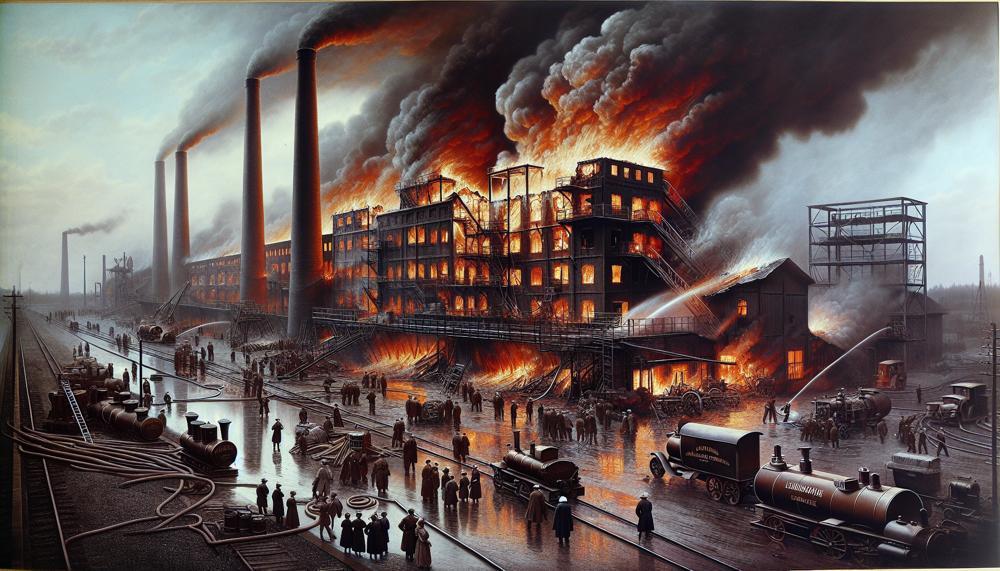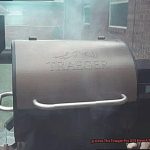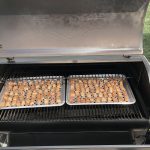Are you a grill master who loves the convenience of a Traeger?
Have you ever been faced with the terrifying reality of your beloved grill going up in flames? You are not alone.
Unfortunately, this has become an all-too-common occurrence for many Traeger owners. But what exactly triggers these fires to erupt?
In this guide, we will delve into the underlying cause of why your Traeger may have caught fire. From design flaws to user error, there are various factors that could be at fault.
So, sit back, relax, and prepare to unravel the mystery behind your Traeger catching fire.
Contents
What are Traeger Pellets?
Traeger Pellets are compressed hardwood pellets made from 100% natural wood, specifically designed for use in Traeger grills. These pellets serve as a fuel source for the grill and impart a consistent, smoky flavor to the food being cooked.
However, if mishandled, Traeger pellets can increase the risk of fire in a Traeger grill. This can happen if there is an excessive amount of pellets in the firepot or a buildup of grease on the drip tray.
The following table outlines some helpful tips to prevent fires caused by Traeger pellets.
| Ensure dry pellets | Moisture can cause clumping of pellets, leading to poor feeding through the auger and firepot. |
| Use a liner on the drip tray | This will help trap excess grease and make cleaning easier. Replace the liner after every few uses. |
| Avoid excessive ash buildup | Accumulation of ash inside the firepot can block airflow and result in fires. |
| Monitor for backburns | If there is an active backburn (pellets burning in the auger causing excessive smoke), unplug the grill and keep both the grill and hopper lid closed to deprive the fire of oxygen. |
It is crucial to follow these safety precautions when operating a Traeger grill to avoid potential fires. Regular maintenance and cleaning of the grill can also help prevent fires caused by pellet or grease buildup.
Additionally, it is recommended to have adequate ventilation and space around your grill to minimize potential hazards.
Common Reasons for Traeger Pellet Fires
Traeger pellet fires can occur for various reasons, such as an overabundance of pellets in the firepot, a build-up of grease on the drip tray, or the use of damp pellets.
These fires can be hazardous and cause damage to not only your grill but also the surrounding areas.
However, by taking certain measures, these fires can be prevented.
- Keep your pellets dry: Moisture can cause pellets to clump together, making them difficult to feed through the auger and firepot. This increases the risk of a fire. To prevent this, it is crucial to store your pellets in a dry place and cover them when not in use. Using a moisture-resistant liner for the hopper can also help prevent any dampness.
- Use a drip tray liner: Grease fires are a common cause of pellet grill fires, with most of them starting on the drip tray. By using a disposable drip tray liner and replacing it after each use, you can prevent excessive grease build-up and minimize the risk of a fire.
- Follow the manufacturer’s instructions: It is essential to read and follow the manufacturer’s instructions and safety guidelines when using your Traeger grill. This includes proper maintenance and cleaning of the grill, as well as using it in a well-ventilated area.
- Regularly inspect for blockages: Blockages in the auger can impede the feeding of pellets, which can lead to a fire. By routinely checking and cleaning your grill, you can prevent these blockages from occurring.
- Monitor your grill while in use: It is imperative to never leave your Traeger unattended while it is in use. This allows you to catch any potential hazards, such as excessive smoke or unusual sounds, before they escalate into a fire.
Buildup of Ash in the Firepot
The accumulation of ash in the firepot greatly increases the potential for a Traeger grill to catch fire.
This is due to various factors that can be attributed to the buildup of ash.
Impeded Airflow
When the firepot becomes clogged with ash, it can block the proper circulation of air within the grill. This limits the amount of oxygen that reaches the flame, causing it to burn at a lower temperature.
As a result, heat and smoke can build up, increasing the risk of flames and flare-ups.
Flammable Ash
If the ash is not regularly removed, it can easily ignite when exposed to open flames or high heat.
This can lead to a hazardous situation, particularly if the fire spreads beyond the firepot into other areas of the grill.
Impact on Pellet Burn Rate
The buildup of ash can also affect the burn rate of pellets, resulting in back burning issues. When there is too much ash in the firepot, it can hinder proper combustion and cause pellets to smolder rather than burn efficiently.
This can cause an accumulation of heat and smoke, further increasing the risk of a fire.
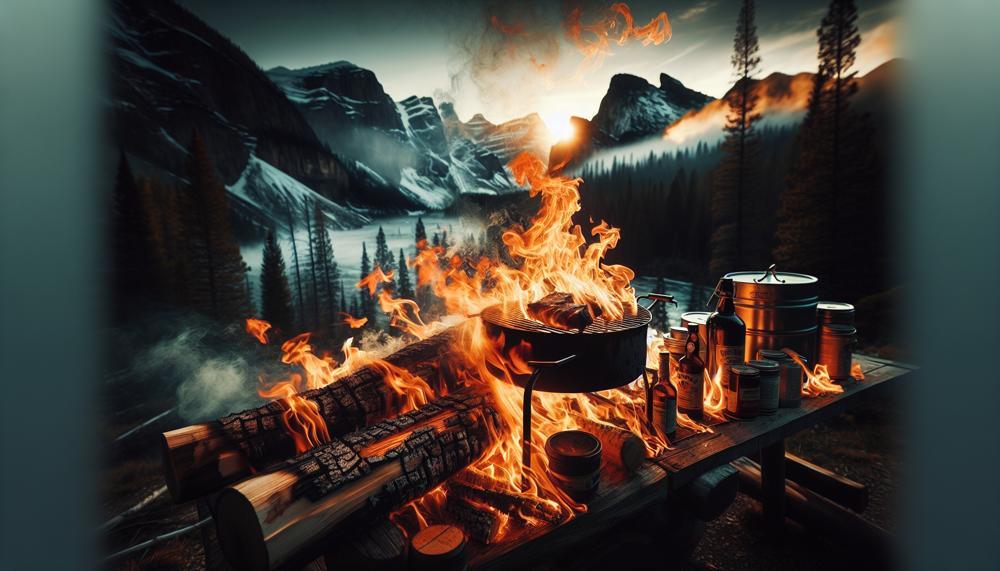
To avoid these dangers, it is crucial to regularly clean out the firepot and ensure proper ventilation within the grill. This allows for unrestricted airflow and prevents any potential blockages that may lead to a fire.
Additionally, following Traeger’s usage instructions and checking for any blockages can also help reduce the risk of a fire.
Malfunctioning Temperature Controller
A malfunctioning temperature controller can potentially ignite a fire in your Traeger grill in multiple ways. One common scenario is when the temperature controller fails to regulate the heat correctly, causing the pellets in the hopper to catch fire.
This can occur because the grill reaches excessively high temperatures due to the malfunctioning temperature controller’s inability to maintain proper temperature control.
Additionally, a malfunctioning temperature controller can also result in feed issues with the auger, leading to pellet buildup and backburning in the firepot.
Moreover, a malfunctioning temperature controller can also increase the risk of fire by causing air flow complications. If the temperature controller is not functioning properly, it may struggle to regulate air flow within the grill.
This can result in higher temperatures and increased air flow, making conditions more flammable and elevating the risk of a fire.
Low-Quality or Moist Pellets
The quality and moisture level of pellets can have a significant impact on the risk of a Traeger grill catching fire.
Using low-quality or moist pellets can lead to various issues, such as temperature control problems, pellet feed complications, and air flow blockages, all of which can increase the chances of a fire starting.
Let’s delve deeper into how these issues can arise.
Temperature Control Issues:
Low-quality pellets often have varying sizes and densities, making it challenging to maintain a consistent temperature in the grill.
This can result in unexpected heat spikes that may cause the pellets to catch fire.
Pellet Feed Complications:
Moisture in the pellets can cause clumping and clogging in the hopper, auger, and firepot.
This can disrupt the feeding mechanism, causing an excess of pellets to be fed into the firepot, increasing the risk of a fire.
Air Flow Blockages:
Moisture in pellets can also hinder air flow, affecting the combustion process and potentially leading to a buildup of smoke and heat within the grill.
This can also increase the risk of a fire.
To prevent these potential hazards, it is crucial to use high-quality and dry pellets in your Traeger grill. Ensure that you store them in a cool and dry place to maintain their quality.
Additionally, regularly cleaning and maintaining your grill can help prevent any fire hazards caused by faulty temperature controllers.
Overly Full Hopper
An excessively full hopper can contribute to a Traeger grill catching fire in multiple ways.
- First, when the hopper is filled to its maximum capacity, there is limited space for air to circulate, which can hinder the proper feeding of pellets into the firepot. This can result in a buildup of heat and pressure, causing the pellets to expand and potentially ignite.
- Secondly, using low-quality pellets or ones with fillers and binders can also increase the risk of a fire. These types of pellets are denser and take up more space in the hopper, restricting airflow and leading to overheating.
- Furthermore, moisture in the air can further contribute to an overly full hopper catching fire. As pellets absorb moisture, they expand and become harder to feed into the firepot. This can cause a backup of pellets in the hopper, resulting in increased heat buildup and potential ignition.
To prevent a Traeger grill from catching fire due to an overly full hopper, it is essential to avoid filling the hopper to its maximum capacity. Instead, leave some room for proper air circulation and pellet feeding. It is also crucial to use high-quality pellets without fillers or binders as they take up less space and allow for better airflow.
Regularly cleaning and maintaining your grill is also vital in preventing fires caused by an overly full hopper.
This includes removing any excess ash or debris that may block airflow and keeping an eye on the grill while cooking at high temperatures.
User Error
When it comes to Traeger grills, there are certain mistakes that users often make that can result in a fire hazard.
These include not properly maintaining and cleaning the grill, using an excess of wood pellets, storing flammable materials in an incorrect manner, disregarding warning signs, and operating the grill in hazardous weather conditions.
Preventative Measures to Avoid Pellet Fires
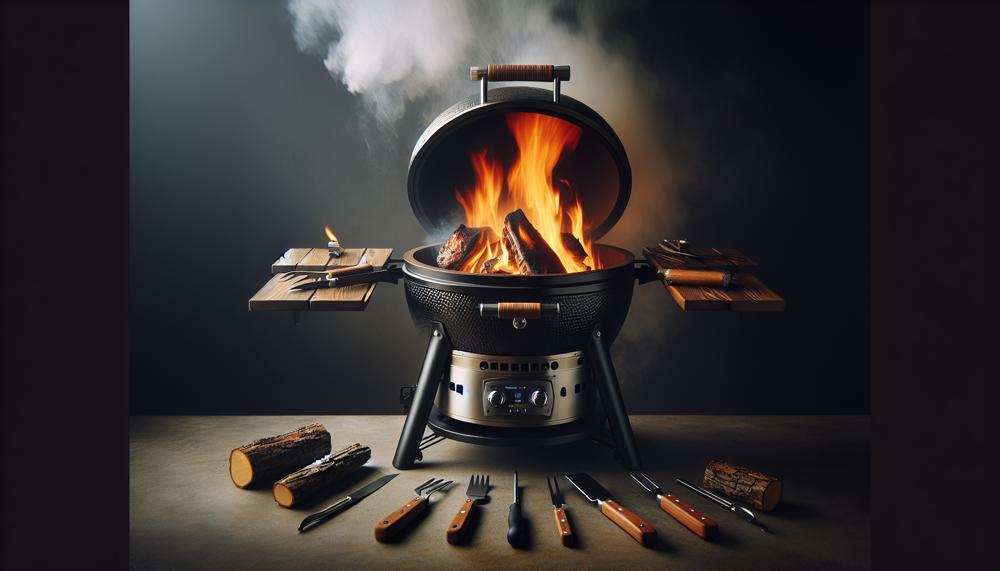
- Use only completely dry wood pellets: The presence of moisture in pellets can cause clumping in the firepot, which increases the risk of fire.
- Adhere to the owner’s manual: Every grill has its own specific startup protocol, so it’s essential to carefully read and follow the instructions.
- Keep your drip tray clean: The drip tray collects grease and can become a fire hazard if not cleaned regularly.
- Maintain distance from flammable objects: It is crucial to keep your grill at least 10 feet away from any walls, furniture, or other flammable materials.
- Regularly clean your grill: Consistent cleaning of your grill can prevent grease buildup, a common cause of fires.
- Monitor for grease pooling: If you notice an accumulation of grease instead of proper drainage, it may indicate a blockage or malfunction in the system. It’s critical to address this issue promptly to avoid potential fires.
- Inspect the firepot before starting: Ensure that the firepot is not filled with ash or overflowing with pellets before igniting your grill.
- Ignite your grill correctly: Always follow the appropriate ignition procedure to ensure safe usage of your grill.
- Allow for a complete shutdown cycle: Before powering off your grill, ensure that it has finished its shutdown cycle to avoid any potential hazards.
In addition to these measures, it is crucial to pay attention to any warning signs, such as unusual noises or smoke emanating from the grill.
In case of severe weather conditions like strong winds or extreme heat, it is best to avoid using your Traeger grill to prevent potential fires.
Conclusion
As a passionate grill master who relies on the convenience of my Traeger, it can be a harrowing experience to witness my beloved grill catching fire.
There are ways to prevent this all-too-common occurrence.
By understanding the root causes and taking proactive measures, you can keep your Traeger safe and sound.
From using dry pellets and regularly maintaining your grill to adhering to safety guidelines and keeping an eye out for warning signs, there are plenty of steps you can take to avoid fires.
Always remember to follow the manufacturer’s instructions and never leave your grill unattended while in use.
These simple but crucial precautions not only protect yourself and those around you, but also allow you to continue indulging in the mouth-watering smoky flavors that Traeger grills are renowned for.

